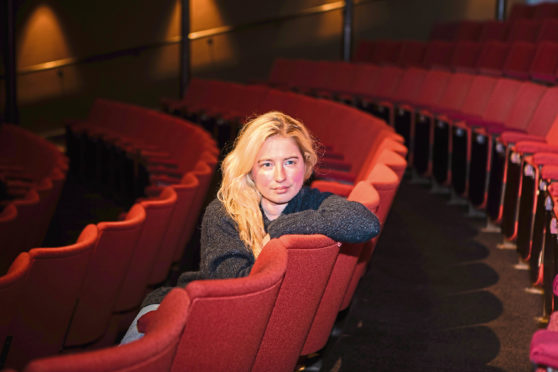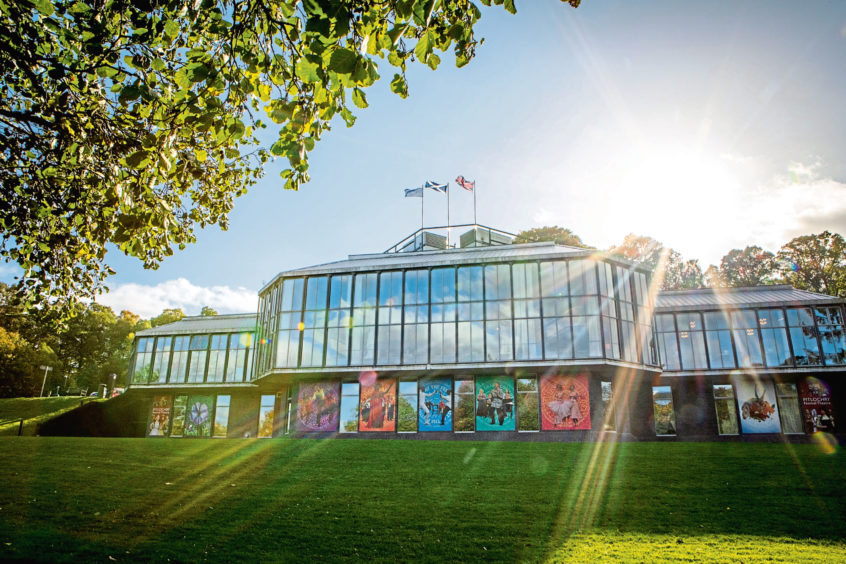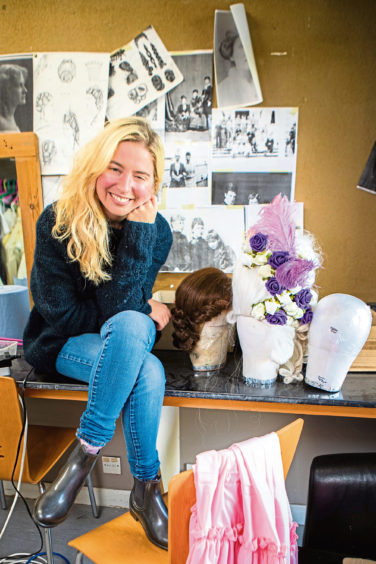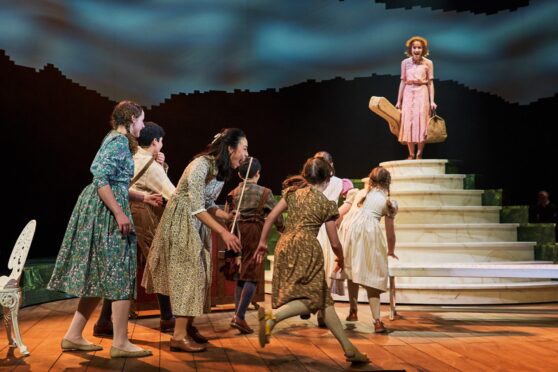With the devastating news that Pitlochry Festival Theatre would have to make almost half their staff redundant as a result of the Covid-19 pandemic, artistic director Elizabeth Newman tells Gillian Lord this won’t stop them making art.
When the UK Government announced their forthcoming changes to the Job Retention Scheme, theatre management knew that unless they did something, they would run out of cash by November.
One of the greatest consequences of the fight against the spread of Covid-19 has been the sudden stop to human contact. In the case of Pitlochry Festival Theatre (PFT), having people filling their 538-seat auditorium is vital to their business.
They are heavily reliant on ticket sales for their income. With the policy of being a Theatre For A Lifetime, and as an all-year-round regional producing theatre, PFT meets 85% of its costs from its £4 million annual turnover, with the remaining 15% funded by Creative Scotland and Perth and Kinross Council.
When the theatre closed at the start of lockdown in March, it also cancelled its busy summer season that generates an average of £1.2m annually. The theatre will not open before 2021.
To survive post-lockdown, the company will need to let go 42 of its 98 permanent staff.
“We are shrinking so we can grow again when things return to normal,” said Elizabeth Newman, the award-winning artistic director who took the reins in October 2018, aged just 32. “We want to be in a position to be able to open again, and to continue to make art until we can.”
She explained that, although redundancies will be drawn from across the organisation, they have retained key roles so they can continue engaging with the public and sharing their art, even during lockdown.
The decision to make staff redundant came down to brutal reality. When faced with Chancellor Rishi Sunak’s announcement that the scaling back of government assistance for furloughed staff would result in companies having to pay 20% of the wages, as well as national insurance and pension contributions by the end of October, the choice was to let people go or run out of money.
When she took charge, Elizabeth brought in an artistic policy across three platforms – Inside, Outside, and Online. Since March, PFT has greatly increased its online activities, which have attracted thousands of participants.
The #PFTLightHopeJoy initiative is one example. Offering a daily entertainment programme suitable for all ages, and presented by staff members, including the actors, it includes demonstrations, activities to do at home, short plays, poetry, songs and stories.
Another project, How To Build Your Own Theatre, is an interactive online activity in place of the scheduled 2020 season opening night. It allows participants to build their own replica of the original tent structure which was the first theatre, opening 69 years ago on May 19 1951.
Telephone Club is a heartfelt initiative which engages directly with the community. Designed for people feeling lonely and isolated during lockdown, members of staff phone up those on the register and have a chat.
For Elizabeth, reaching out is an essential aspect to what PFT does, and if it means getting creative in its approach during these socially distant times, so be it.
“We’re funded to make art,” she said. “Our responsibility is to the community, to engage with and make art for the community.”
In “normal” times, PFT produces nine shows a year – six in summer, and one each in autumn, winter and spring. All productions are in-house – they create all their own sets and costumes as well as produce their own work. Besides that, PFT runs other programmes, such as the Winter Words Literary Festival in February.
PFT is one of the last theatres in the world to offer a repertoire system – meaning visitors can see a different show every night of the week, and two on matinee days. In today’s world, that is a unique theatre experience. Some 100,000 visitors come especially to do this, year-on-year. The 2020 summer season would have seen 141 shows performed.
PFT’s facilities include its theatre, six-acre garden, shop, restaurant, bar and cafe – almost all of which depend on people being able to mix freely.
The PFT began as an earnest promise made by Glaswegian amateur theatre promoter John Stewart, who visited the area during the Second World War and vowed to return in peacetime to start his festival theatre there.
Showing a remarkable fortitude against unsupportive bureaucracy, he eventually opened as a tent theatre in 1951 and, later, when bad luck and bad weather threatened to sink him, he declared the theatre a not-for-profit society and gave his house and grounds to it to keep his dream alive. Against all odds, the theatre has survived, stayed true to the community it serves, and produced world-class theatre for loyal local audiences and international visitors alike.
The story of PFT being hammered by hardship and circumstance is echoed in the story of many theatres around the world – and now, as the economic reality of the Covid-19 pandemic begins to bite, many are having to make difficult decisions. As Elizabeth points out, there are theatres in the UK already going into administration.
As vital as the performing arts is to the joy and function of a society, it is frequently the industry left exposed in tough economic times. The amount of money PFT would need to keep afloat while Covid-19 keeps its theatre dark is paltry compared to, say, the cost of one of the cutting-edge F-35 stealth fighter jets the UK Government has purchased – one jet costs around £92m.
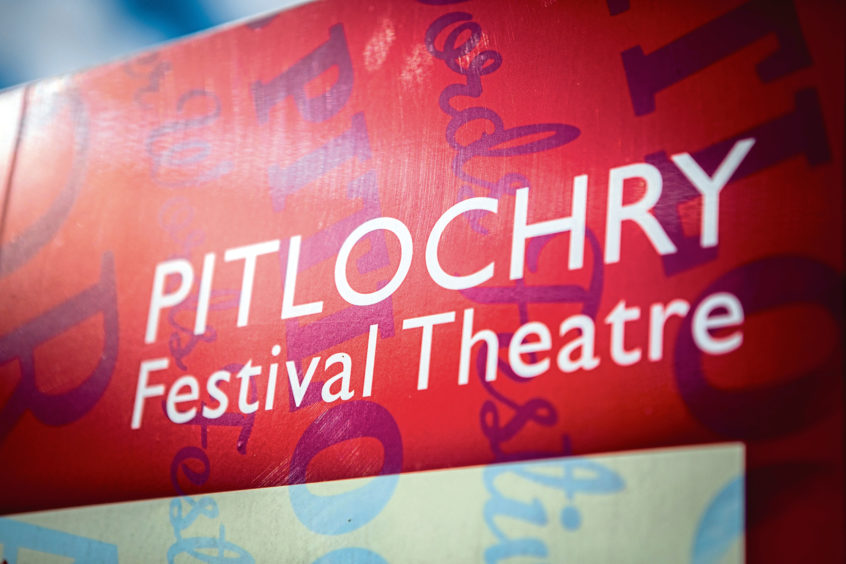 The times may be hard, but the passion and commitment has not abated. Elizabeth is sure theatre will survive, evolve, and continue to serve its audiences – including her own beloved theatre in the hills.
The times may be hard, but the passion and commitment has not abated. Elizabeth is sure theatre will survive, evolve, and continue to serve its audiences – including her own beloved theatre in the hills.
“I think theatre will survive because it has to survive,” she says. “It helps people make sense of the world.”
She also believes there will be good to come of these bad times.
“I see the positive being that people are going to be very grateful for when they can really come together. It’s going to be a moment in history when we all remembered how fragile we were.”
She’s been grateful to have been in lockdown in the Perthshire Highlands.
“It’s so beautiful here in Pitlochry, it’s heaven on Earth really. It’s such a beautiful place to live.
“For now we continue to reach as many people as possible with our work, online, we’re continuing to work with many other theatres, stay in dialogue, so when we can get out there again, we can do something wonderful.”
For more information, see pitlochryfestivaltheatre.com
